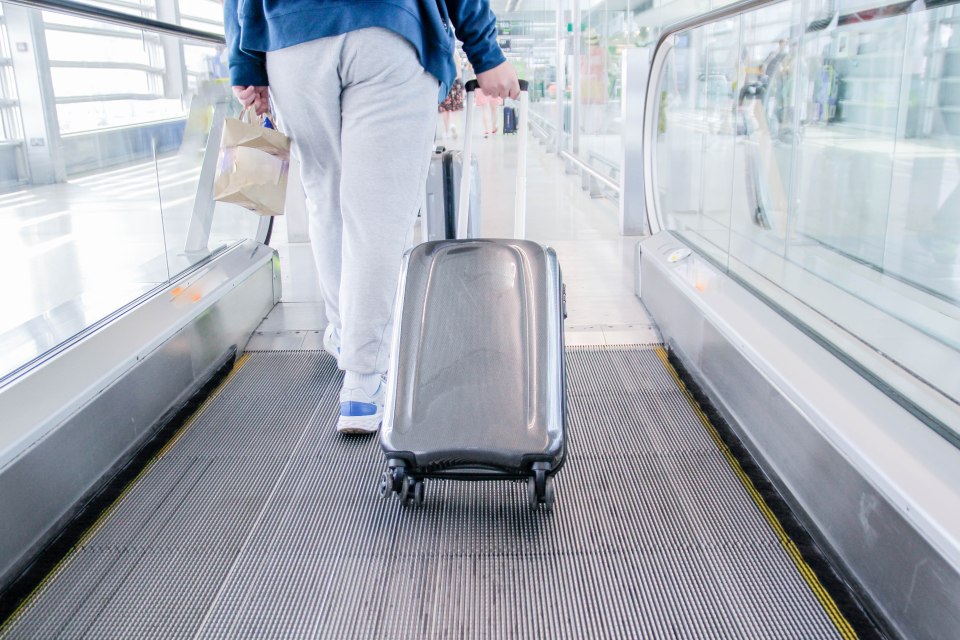HOLIDAYMAKERS are more worried about losing luggage and missing flights than being pickpocketed and misplacing their passport.
A poll of 2,000 travellers found health emergencies are the top worry when in a different country, with theft also being a big concern.
Meanwhile, 27 per cent fear getting lost, and 25 per cent are anxious about their accommodation being unsafe.
However, only eight per cent fret about being exposed to online threats while abroad – something particularly common via unsecured networks on foreign shores.
Melissa Voeller, cyber safety advocate for Norton, which commissioned the research, said: “When we travel, we often focus on physical safety, like guarding our belongings or catching our flight, but digital threats don’t take a holiday.
“From public Wi-Fi risks to phishing scams disguised as hotel confirmations, cybercriminals target travellers when their guard is down.
“That’s why it’s just as important to secure your digital life as it is to secure important documents like your passport.”
The study also found 86 per cent of travellers consider themselves to be cautious when booking travel.
But 29 per cent have been scammed or targeted, either during the trip or when planning it.
When it comes to online safety, 23 per cent admit they’re not particularly clued up, and 58 per cent think they should give more thought to the matter when away.
It also emerged that 14 per cent are unsure of the risks associated with connecting to an unsecured Wi-Fi network.
These commonly include malware distribution, where unsecured networks can be used to distribute malicious software to your device – and fake Wi-Fi hotspots.
Of those who do connect to Wi-Fi while abroad, suspicious pop-ups (14 per cent), data breach alerts (nine per cent) and online scam or fraud (eight per cent) were all things they experienced.
The most common activities carried out by those who connect to Wi-Fi when abroad range from online banking (41 per cent) and shopping with a credit card (30 per cent), to streaming TV or music (38 per cent) and checking work emails (33 per cent).
To access Wi-Fi while travelling, 45 per cent have offered their email address, 30 per cent have inputted their first and last name – and 28 per cent even disclosed their hotel room number, according to the OnePoll.com data.
Melissa Voeller, from Norton, added: “Public Wi-Fi might be convenient for checking maps or posting on social media, but it can be a hotspot for cybercriminals, too.
“Logging into banking apps or entering personal information on an unsecured connection abroad can be just as risky as losing your wallet.
“A few clicks in the wrong place could give hackers access to everything from your email to your banking details, making you more vulnerable to threats.
“One-way holidaymakers can safeguard their online privacy, especially when travelling, is by using a Virtual Private Network (VPN) that can help protect your digital life and enable access to your favourite content wherever you are around the world.”
It emerged only 26 per cent say they have used a VPN while traveling.
And holidaymakers are accessing their personal emails (40 per cent), social media profiles (36 per cent) and bank details (16 per cent) on public Wi-Fi networks without a VPN.
Travel expert Simon Calder said: “Staying connected while travelling is second nature these days, whether it’s checking flight details, finding directions or booking last-minute tickets.
“But public Wi-Fi, especially in places like airports or hotels, isn’t always as safe as it seems.
“That’s why using a VPN is a smart move. It gives you added peace of mind that your online activity stays private and for your eyes only, no matter where your travels take you.”
TOP 10 THINGS BRITS WORRY ABOUT ON HOLIDAY
1. Health emergencies
2. Losing luggage
3. Missing flights
4. Theft of personal belongings
5. Pickpockets
6. Losing important documents
7. Overcrowded tourist spots
8. Unsafe drinking water
9. Getting lost
10. Language barriers / cultural misunderstandings














